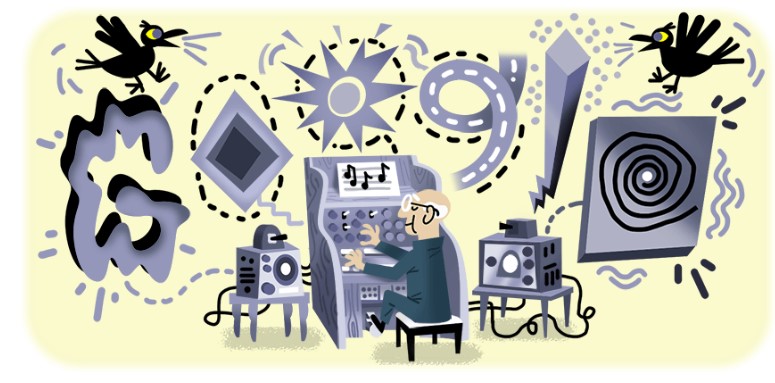Oskar Sala: Google doodle honors German electronic music composer!

- Country:
- Germany
Spoiler Alert: This article contains spoilers. Proceed with caution if you have not watched the show/movie.
Happy Birthday Oskar Sala!
Google Doodle celebrates Oskar Sala, the German music composer, and physicist, on his 112th birth anniversary Monday, July 18. He is well known for producing sound effects on a musical instrument called a mixture-trautonium, Salas electrified the world of television, radio and film.
“Take a beat to celebrate German electronic composer Oskar Sala’s 112th birthday. He developed & played the mixture-trautonium, which introduced a unique sound to television, radio & film,” read Google’s tweet.
Oskar Sala was born in Greiz, Germany, in 1910 and was immersed in music since birth. His mother was a singer and his father was an ophthalmologist with musical talent. At 14, Oskar Sala began creating compositions and songs for instruments like the violin and piano.
When Oskar Sala first heard about a device called the trautonium, he became fascinated by the tonal possibilities and the technology the instrument offered. His life mission became mastering the trautonium and developing it further which inspired his studies in physics and composition at school.
This new focus led Oskar Sala to develop his own instrument called the mixture-trautonium. With his education as a composer and an electro-engineer, he created electronic music that set his style apart from others. The mixture-trautonium’s architecture is so unique that it was capable of playing several sounds or voices simultaneously.
From behind the door of a recording studio, Oskar Sala composed musical pieces and sound effects for many television, radio and movie productions, such as Rosemary (1959) and The Birds (1962). The instrument created noises like bird cries, hammering and door and window slams.
Oskar Sala received several awards for his work—he gave many interviews, met numerous artists and was honored in radio broadcasts and movies. In 1995, he donated his original mixture-trautonium to the German Museum for Contemporary Technology.
Oskar Sala also built the Quartett-Trautonium, Concert Trautonium and the Volkstrautonium. His efforts in electronic music opened the field of subharmonics. With his dedication and creative energy, he became a one-man orchestra.
Also Read: Google doodle celebrates Venezuela Independence Day 2022!
Source: Google doodles










